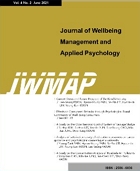- 권한신청
- E-ISSN2586-6036
- KCI
A Study on the Structural Causal Relationship of Marketing Stimulating Factors on Online Impulse Purchase through Consumer Value: Focusing on the Mediating Effect of Consumer Value
LEE, Jae-Min (Department of Business Administration, SungKyunKwan University)
Abstract
Purpose: With the introduction of Web 2.0, the advent of smartphones, and the recent outbreak of COVID-19 worldwide, interest in online shopping has soared. In an online shopping environment, the desire for impulse buying increases compared to offline shopping. Research design, data and methodology: In this study, three marketing stimulating factors such as product factor, price factor, and facilitating factor were selected which affect impulse buying for clothing and accessory products in the Korean online shopping environment. The mechanism of causal relationship among them, and the role customer value between marketing stimulating factor and impulse buying was analyzed. Results: The analysis results are as follows. First, the product factor had a significant positive effect on consumer value and impulse buying. Second, the price factor also had a significant positive effect on consumer value and impulse buying. Conclusions: Although the facilitating factor had no significant influence on consumer value and impulse buying, the indirect effect through consumer value was positively significant. Consumer value had a positive mediating effect on impulse purchase in the order of price factor, product factor, and promotion factor.
- keywords
- Impulse Buying, Marketing Stimulating Factors, Consumer Value, Mediating Effect
- 다운로드 수
- 조회수
- 0KCI 피인용수
- 0WOS 피인용수














